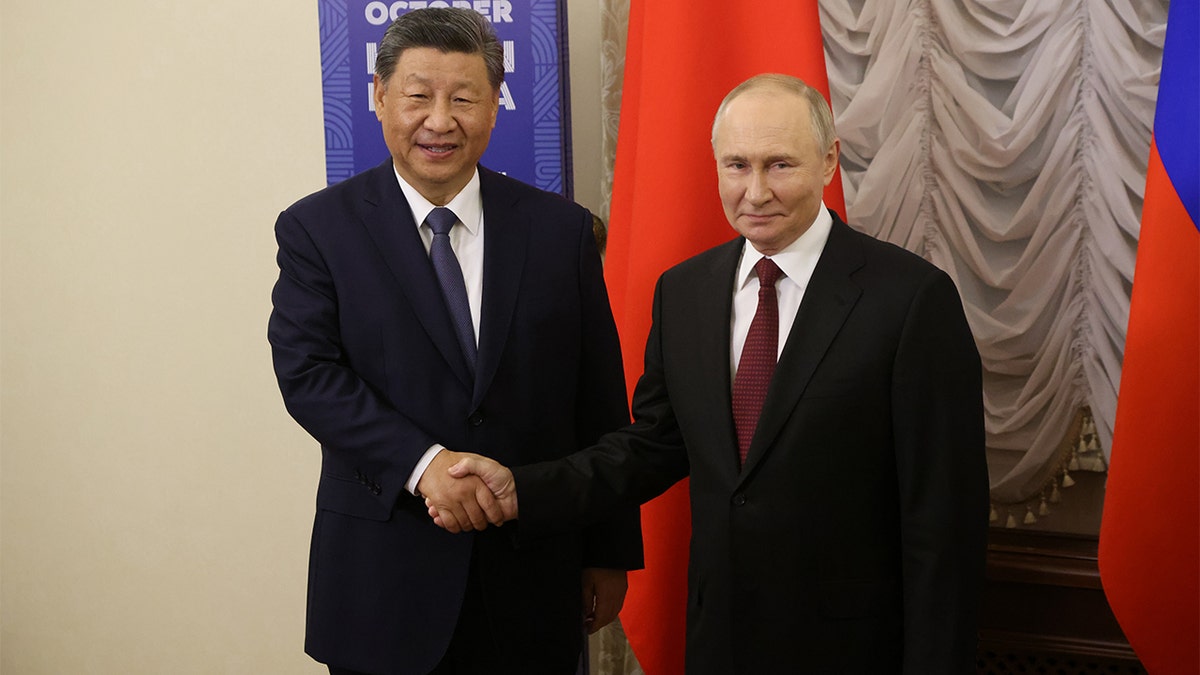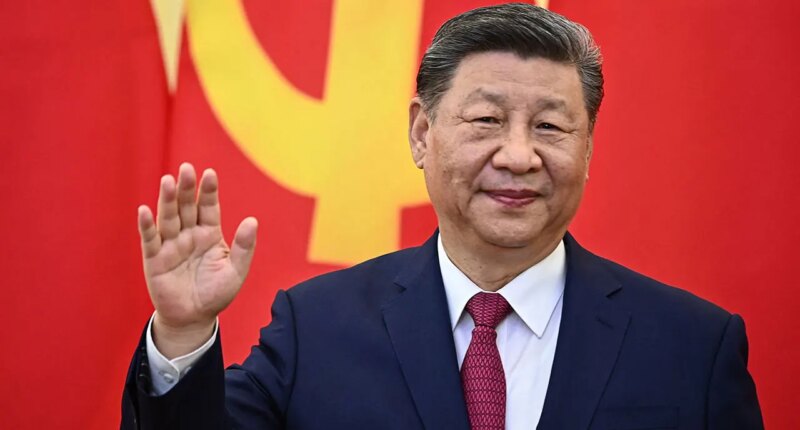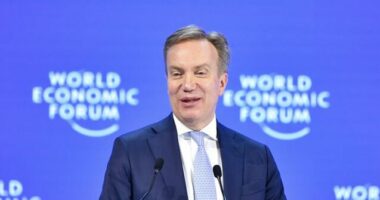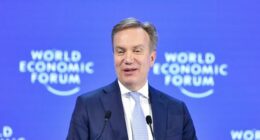Share this @internewscast.com
Security specialists are highlighting concerns that China and the global community are keenly observing how President Donald Trump engages with Russian President Vladimir Putin following their meeting in Alaska on Friday.
The White House described the forthcoming discussions as a “listening exercise,” with Trump assuring that he would neither formulate deals nor allow for concessions in his talks with Putin.
But security experts have warned that this meeting will have consequences beyond the war in Ukraine.
U.S. President Donald Trump is seen shaking hands with Russian President Vladimir Putin during their meeting to discuss a resolution to the war in Ukraine, which took place at Joint Base Elmendorf-Richardson in Anchorage, Alaska, on August 15, 2025. (Reuters/Kevin Lamarque)
Lithuanian Defense Minister Dovilė Šakalienė remarked to Fox News Digital, during her visit to Washington, D.C., this week, “Given that China consistently supports and facilitates Russia, it is natural for them to follow the discussions concerning Ukraine with intense interest.”
She further noted, “Any potential concession could undoubtedly motivate the PRC [People’s Republic of China] to pursue an aggressive approach in the Indo-Pacific, as the threat of severe repercussions would appear notably diminished.”
Following the Anchorage-based discussions, Trump expressed his intent to promptly contact his European and Ukrainian counterparts, expressing optimism that the subsequent phase would involve a direct meeting between Ukrainian President Volodymyr Zelenskyy and Putin, potentially with Trump and various European leaders also attending.
“If Washington is perceived as ‘selling out’ Ukraine, Beijing will learn a simple lesson: Coercion pays and costs are containable,” Singleton added. “In that case, Beijing may step up [military] incursions around Taiwan and intensify gray-zone pressure to gauge just how much stability Washington will trade for silence.”
But there is one more element to the meetings that has security experts worried – Zelenskyy’s absence.
Though the meeting was apparently pushed by Putin, who has thus far refused to meet with Zelenskyy despite the Ukrainian president’s calls to do so, his absence when discussing a war taking place on his nation’s soil could speak volumes to China.

Russian President Vladimir Putin and Chinese President Xi Jinping shake hands at the BRICS Summit in Kazan, Tatarstan Republic, Russia. (Getty Images)
“From Beijing’s perspective, leaving Zelenskyy out widens the lane for a face-saving freeze that locks in Russia’s battlefield gains, an implicit nod that great powers can revise borders by force,” Singleton said. “Beijing will quietly welcome it and note that Washington entertained settlement talks without Kyiv, a precedent it will pocket for Asia.”
Ultimately, he argued, “If aggression pays in Europe, deterrence discounts in Asia.”
“For Beijing, the Alaska meeting is the message. Great powers bargaining over smaller states normalizes the world order Chinese leader Xi Jinping prefers,” Singleton added.

















